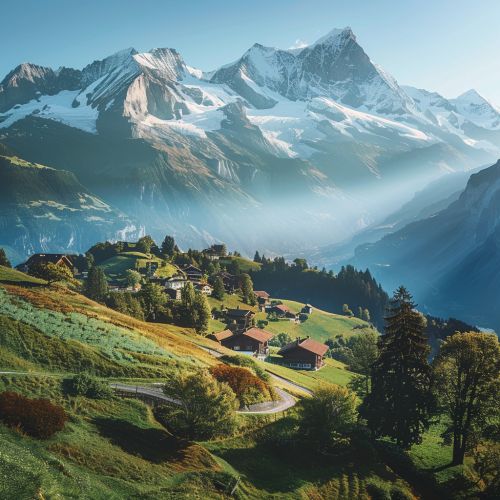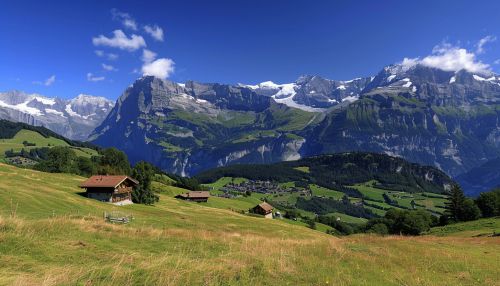Switzerland
Geography
Switzerland, officially known as the Swiss Confederation, is a landlocked country situated in the confluence of Western, Central, and Southern Europe. It is geographically divided among the Swiss Plateau, the Alps, and the Jura, spanning a total area of 41,290 square kilometres. The country shares its borders with Italy to the south, France to the west, Germany to the north, and Austria and Liechtenstein to the east.


Politics
Switzerland is a federal republic composed of 26 cantons, with Bern as the seat of the federal authorities. The country is known for its policy of armed neutrality and has not participated in any international conflict since 1815. The Swiss Confederation has a history of neutrality going back to the Reformation; it has not been in a state of war internationally since 1815 and did not join the United Nations until 2002. Nevertheless, it pursues an active foreign policy and is frequently involved in peace-building processes around the world.
Economy
Switzerland has a stable, prosperous and high-tech economy. It is home to several large multinational corporations. The country is noted for its robust economy, which is characterized by a highly developed service sector led by financial services, and a high-tech manufacturing industry. The economy of Switzerland ranks first in the world in the 2015 Global Innovation Index and the Global Competitiveness Report. It is considered the wealthiest country in the world per capita in multiple rankings.
Culture
Switzerland's culture is characterized by diversity, which is reflected in a wide range of traditional customs. The country is known for its mountains and landscapes, which play a large role in the country's identity. Switzerland is also known for its historical and heritage sites, including its historic cities and their architecture. The country is also famous for its watches, chocolate, cheese, and Swiss Army knives.
